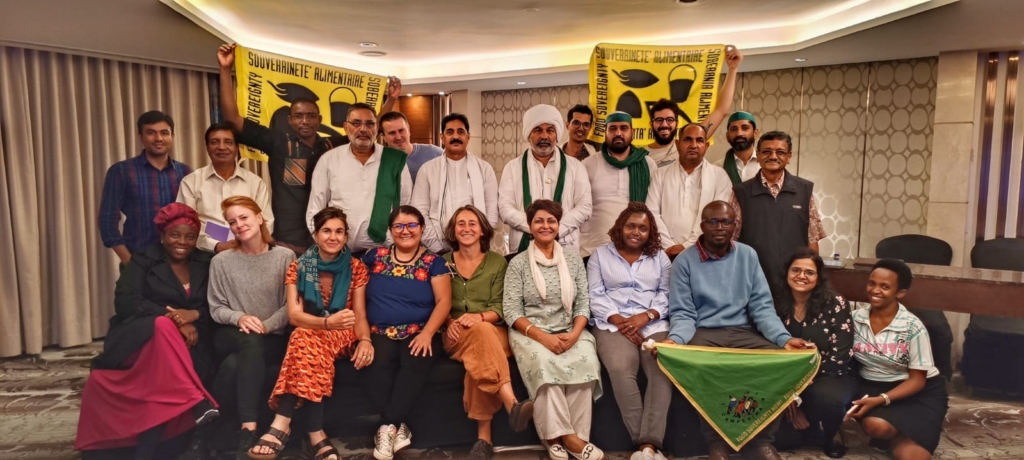September 17, 2022
The IPC Working Group on Biodiversity is participating at the meeting of the governing body of the International Treaty on Plant Genetic Resources for Food and Agriculture (ITPGRFA) to continue the struggle to defend farmers rights over their seeds. The meeting will be held in New Delhi in India from today (17th of September) to the 24th of September.
We will have a delegation of 15 members of different organizations member of the IPC and also with some support NGOs like Centro Internazionale Crocevia, FIAN International and the African Centre for Biodiversity. We will have the pleasure also to have with us a large delegation of Indian farmers representative that can give strength to our participation connecting the problems that are ongoing in India.
Our objective is to push for the compulsory character of the Treaty as a tool that government must implement correctly at national level. It’s almost 6 years we are following the specific work on the implementation of farmers rights of the Treaty (article 9) and we need to see the results now. We will be there to make sure that biopiracy using the genetic information will not be institutionalised excluding the Digital Sequence Information (DSI) system from ITPGRFA provisions.
DSI is a technique which will make available the information of the seeds in a digital format. This issue is at the core of the implementation of the Treaty, because all its rules and articles applies (for the moment) only to physical resources. So, this means that if the governments decide that the rules to access to seeds are applied only to physical resources, then it will be easy for biopiracy to use the information on seeds without any limitation because those information are not intended to be under restrictions. Therefore, if the Treaty cannot be applied on genetic information (which is the future of genetic manipulation and patenting), the whole existence of the Treaty will be at risk.
We need to defend the rights of peasants to sow, resow, exchange and sell their seeds.
The second important struggle we will face in India is the implementation of the Multilateral System of seeds. The Multilateral System is the platform that allows the exchange of seeds among gene banks and that permit the access to seeds by research and industry only under determined conditions and under the promise (because it is still voluntary) of remuneration of this access in the Benefit Sharing Fund.
Gene banks for the moment have only physical seeds but DSI will make soon the access and use of genetic information a reality.
We will need to make sure that also the genetic information of the seeds under multilateral systems follow the same rule as of the physical seeds in order to avoid biopiracy by the seeds industries.
